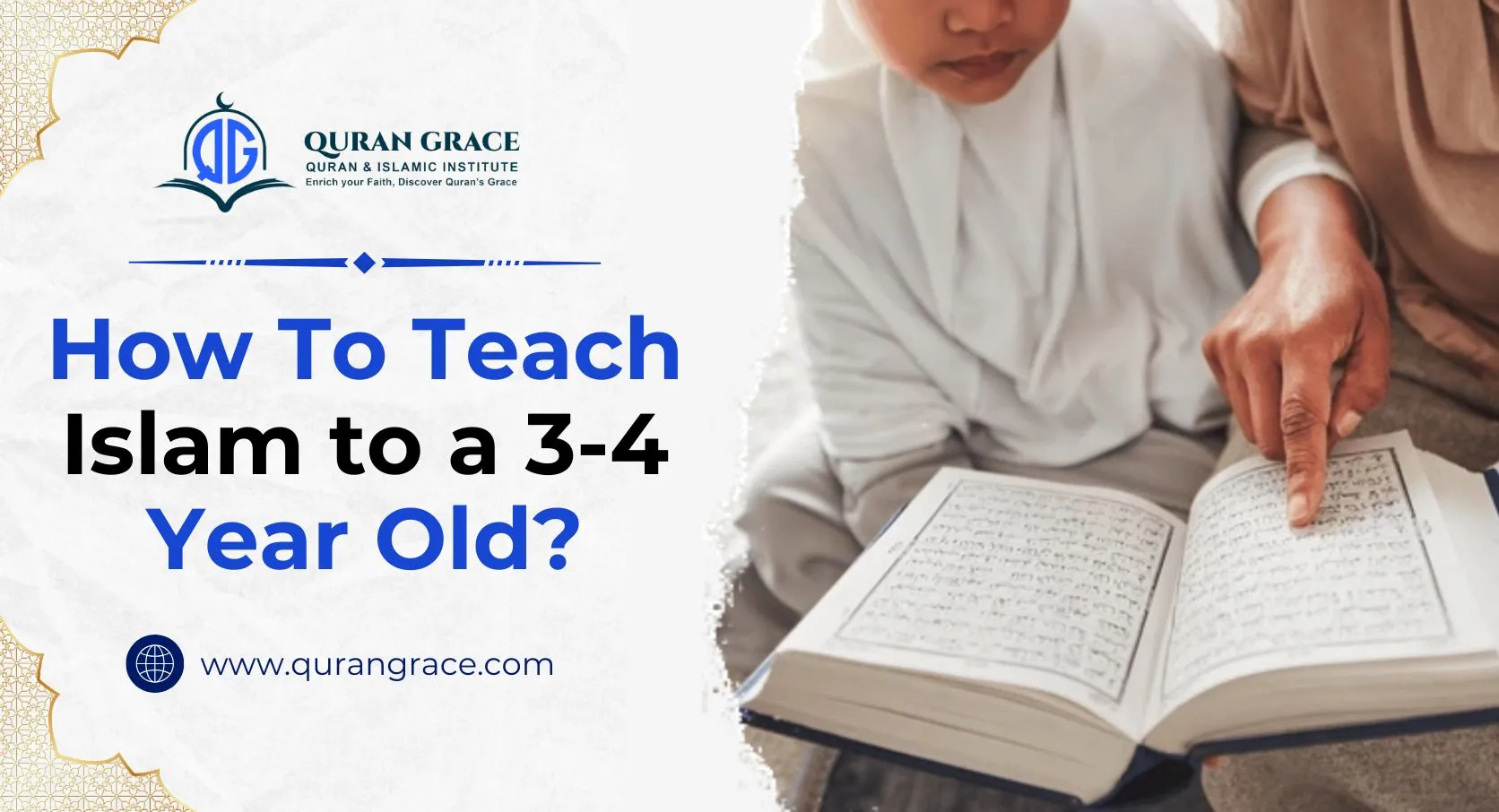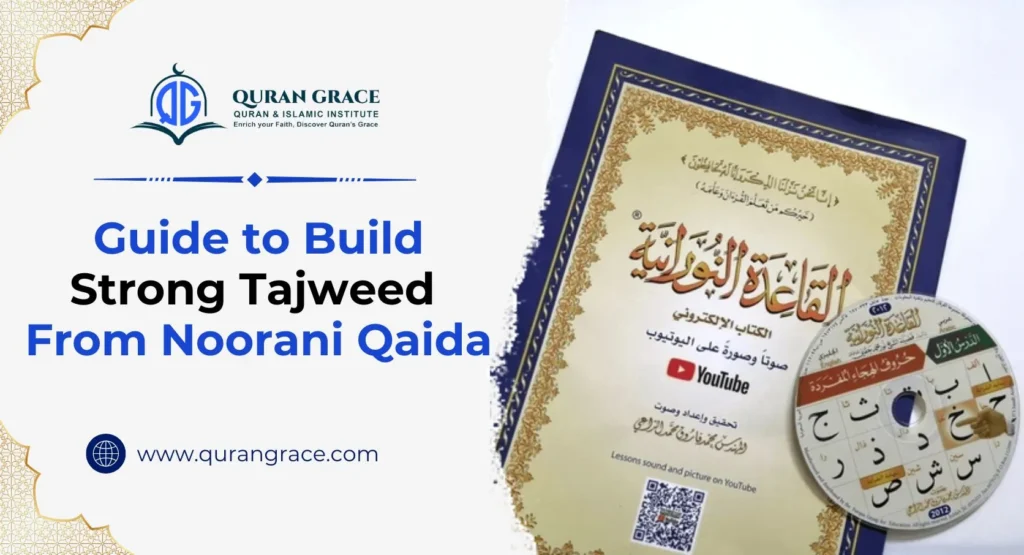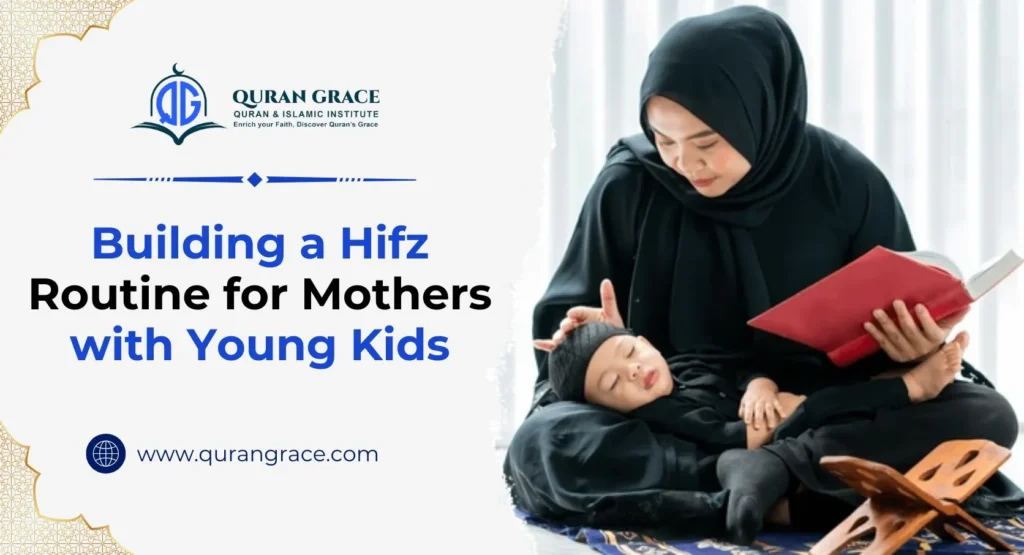Teaching Islam to a 3-year-old is all about nurturing love for Allah and the Prophet ﷺ through warmth, play, and consistency. At this tender age, children learn best when Islamic teachings are introduced gently—through everyday routines, joyful activities, and sensory exploration. Enrolling them in kids islamic classes or engaging in simple Quran-related activities at home can help build early familiarity with Islamic values. By focusing on foundational concepts and creating a nurturing Islamic environment, parents can help their little ones develop a strong emotional and spiritual connection with their faith from the very beginning.
Table of Contents
Toggle4 Tips To Teach Islam to 3-5-Year-Old Kids
Here are some important and fun tips to teach Islam to kids in a loving, engaging, and effective way that helps them connect with their faith from an early age.
1. Focus on Foundational Concepts and Love
The most important lesson is to instill a love for Allah (SWT) and the Prophet Muhammad (PBUH). Keep it simple and positive.
- Allah is Loving and Kind: Explain that Allah made everything we love, like the sun, the flowers, you, and your family. Use simple phrases like, “Allah loves you very, very much.”
- The Prophet as a Role Model: Talk about the Prophet Muhammad (PBUH) as a good man who was kind to everyone. Use simple stories focusing on manners and kindness, like sharing toys or saying “thank you.”
- Concept of Blessings (Ni’mah): Whenever you give them food or they enjoy an activity, prompt them to say, “Alhamdulillah (Praise be to Allah) for this blessing.” This connects Allah to their everyday joys.
2. Incorporate Simple Daily Routines
Consistency is key for a 3-5-year-old. Integrate Islamic practices into their daily life in a non-pressurized way.
- The Power of Bismillah: Teach them to say “Bismillah” (In the Name of Allah) before starting any activity: eating, playing, getting dressed, or beginning a craft. This is a very tangible, practical link to Islam.
- Simple Adhkar (Remembrances):
- Saying “Alhamdulillah” after finishing food or sneezing.
- Saying “Assalamu Alaykum” (Peace be upon you) when greeting family.
- Saying a very short “SubhanAllah” (Glory be to Allah) when they see something beautiful, like a rainbow or a kitten.
- Mimicking Salah (Prayer): Toddlers love to imitate. Lay out a small prayer mat next to yours and encourage them to “pray” with you during your Salah. They don’t need to perform the actions correctly; the goal is to create a positive, familiar ritual. Let them wear a small cap or hijab to make it fun.
3. Use Play and Sensory Learning
Three to five-year-olds are tactile learners. Use activities that engage their senses and imagination.
- Alphabet & Arabic: Use colorful Arabic alphabet blocks or flashcards as part of their playtime. Say the letters’ names and sounds, even if they don’t grasp them yet.
- Islamic Art & Crafts:
- Ka’bah Craft: Use a square box and cover it with black construction paper to make a simple model of the Ka’bah.
- Moon and Stars: Make crafts focused on the new moon 🌙, explaining that we look for it to start a new month (like Ramadan or Eid).
- Stories and Songs: Read age-appropriate Islamic storybooks (choose ones with large pictures and simple text) or sing Islamic nursery rhymes that teach manners or simple adhkar.
4. Create an Islamic Environment
The environment they grow up in will shape their understanding.
- Visual Cues: Have a few appealing, colorful pictures or decorations with Islamic themes in their room or play area—perhaps a picture of the Ka’bah, the Arabic numbers, or a simple poster with “Bismillah.”
- A “Muslim Home” Atmosphere: Ensure they regularly see and hear Islamic practices. Seeing you read the Qur’an or hearing a soft recitation helps normalize and sanctify these sounds.
Key Principles for Success
- Keep it Short and Sweet: A 3-5-year-old’s attention span is short. Keep lessons and activities under 5-10 minutes.
- Patience and Flexibility: Don’t expect perfection or instant understanding. If they aren’t interested in an activity, try again another day. Never use shame or punishment—learning Islam should be associated with joy.
- Lead by Example (The Best Teacher): Your actions are their best lesson. Your kindness, your consistent Salah, and your expression of gratitude to Allah are what they will absorb most powerfully.
Conclusion
If you’re looking to enroll your child in an online Islamic studies course, Quran Grace is the perfect place to start. We offer customized and flexible online quran classes designed to make learning Islam easy and enjoyable. Join our free evaluation class today and let your 3-5-year-old begin their beautiful journey of discovering Islam with joy and understanding.








